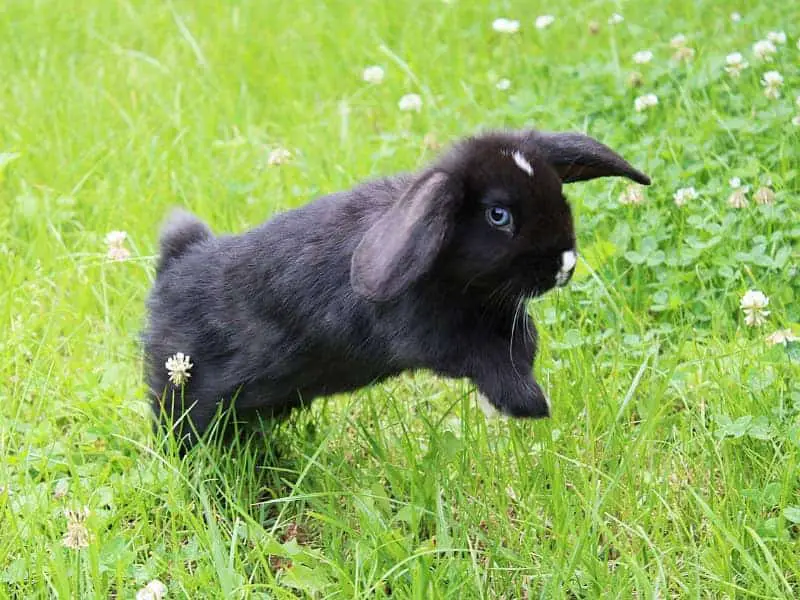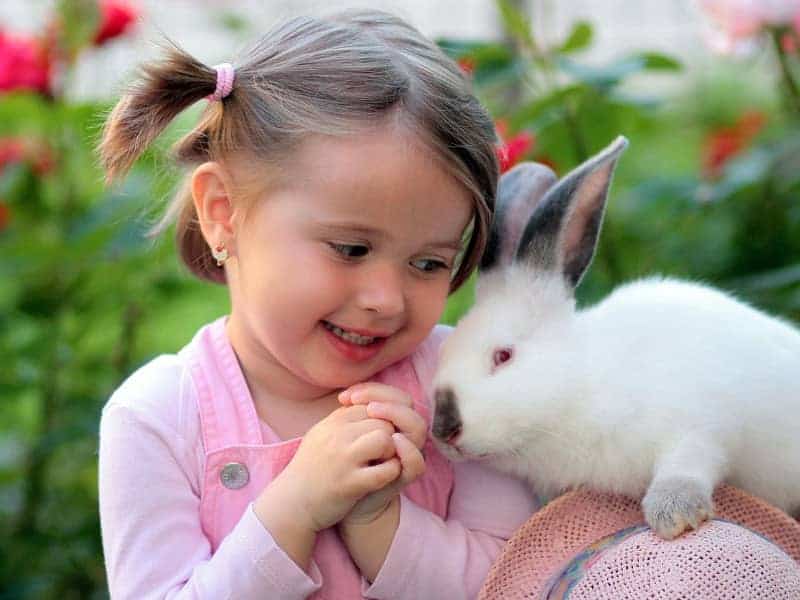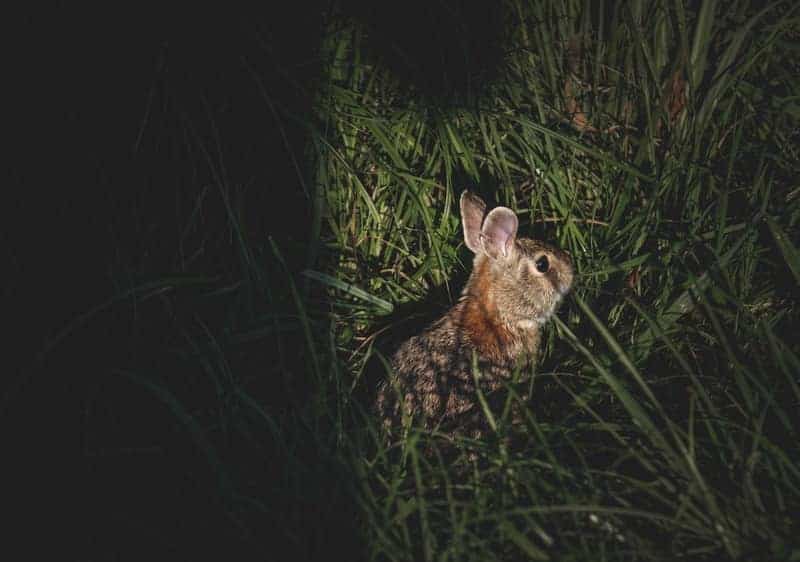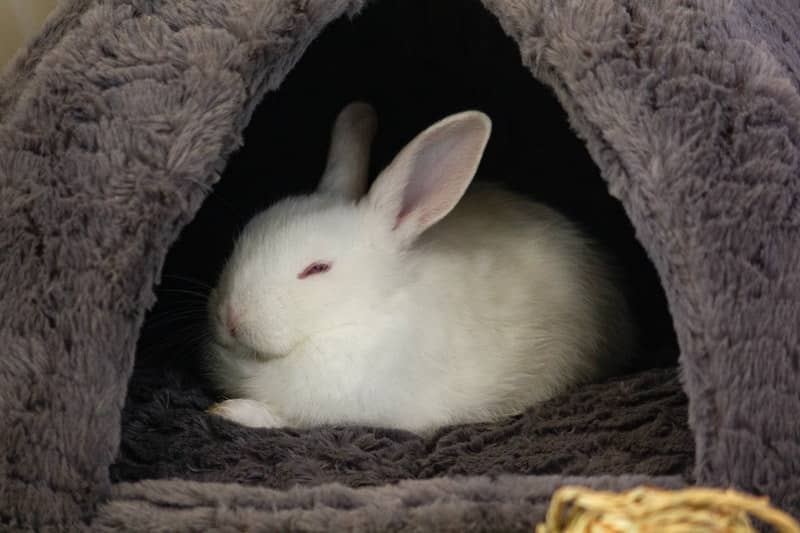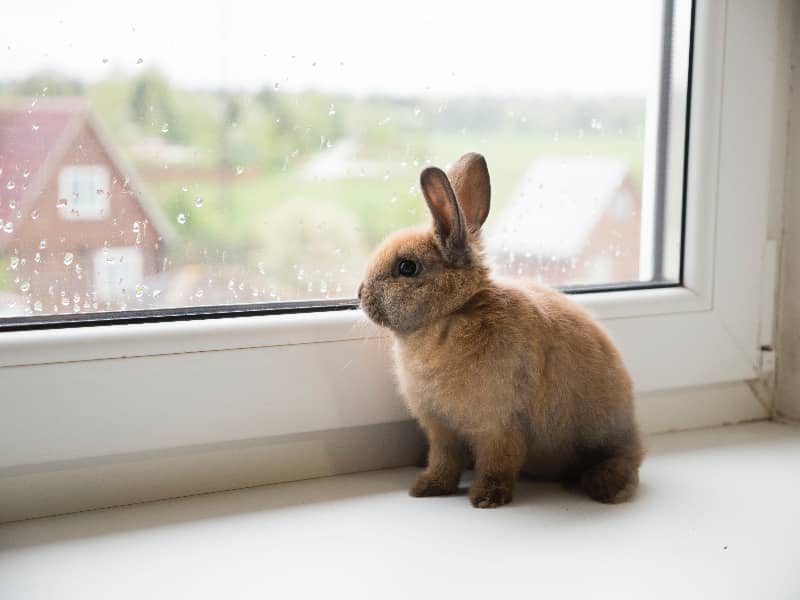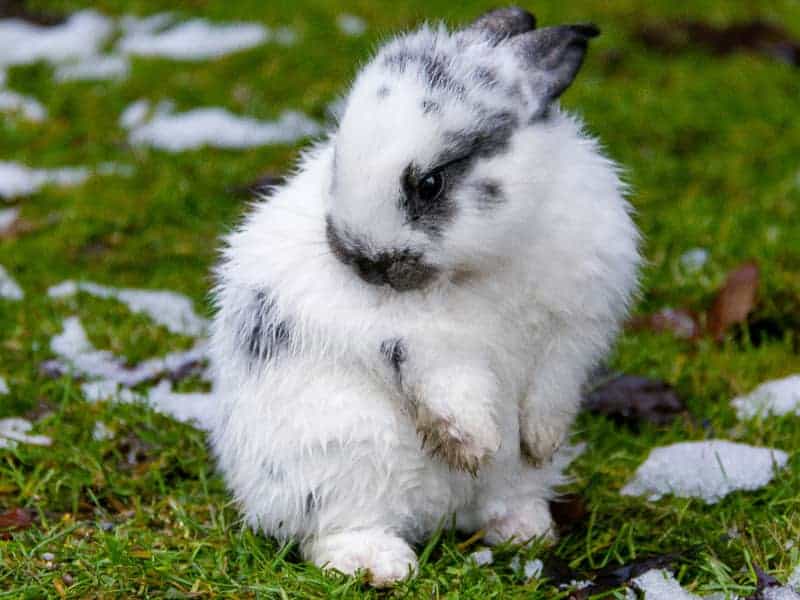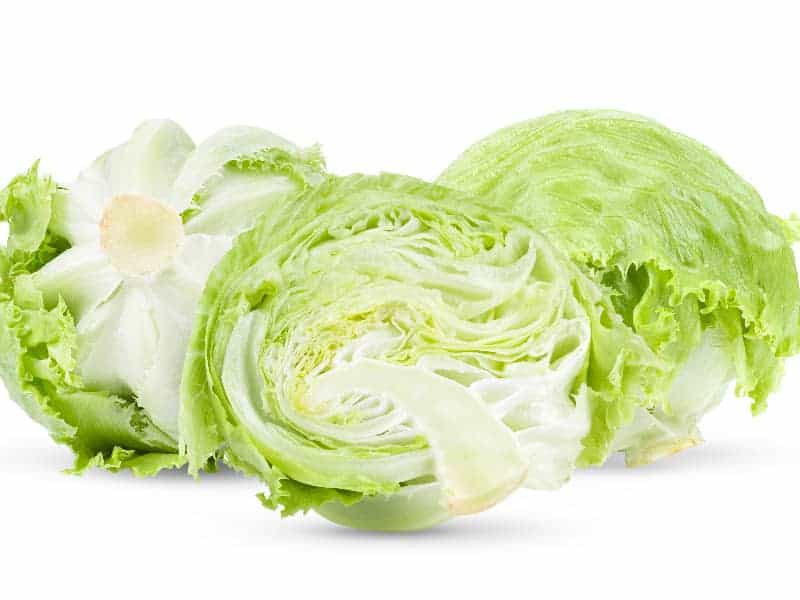
Are rabbits allowed to eat iceberg lettuce?
Hello, dear readers. Today we will deal with a question that has probably crossed the mind of every rabbit owner: Are rabbits allowed to eat iceberg lettuce? To find the answer to this question, we need to look a little closer at the diet of rabbits.
- Are rabbits allowed to eat iceberg lettuce?
- What do rabbits actually eat?
- Salads and rabbits
- Is iceberg lettuce toxic to rabbits?
- The healthy diet of a rabbit
- Are dwarf rabbits allowed to eat iceberg lettuce?
- The right feeding for a long and healthy rabbit life
- Understanding the physiological needs of rabbits
- The special digestive system of rabbits
- Why is high-fiber food so important?
- The importance of water in rabbit nutrition
- Alternatives to iceberg lettuce for a healthy rabbit diet
- Conclusion: Are rabbits allowed to eat iceberg lettuce?
What do rabbits actually eat?
Before we address the question of whether rabbits can eat iceberg lettuce, we should first look at what rabbits actually eat. In nature, rabbits feed mainly on grasses, herbs, leaves, roots and tubers. These foods provide the animals with a wide variety of nutrients that are essential for their health.
The role of green fodder in rabbit nutrition
Green fodder plays an important role in a rabbit's diet. It is an excellent source of fiber, which is essential for healthy digestion. Moreover, it also provides many important vitamins and minerals. However, it should be noted that not all salads are suitable for rabbits.
Salads and rabbits
Lettuces belong to the composite family and are basically edible for rabbits. Nevertheless, there are some varieties that are less suitable than others. Iceberg lettuce, for example, has a very high water content and relatively few nutrients.
It also contains a substance called lactucarium, which in large quantities can cause health problems. The effect of this substance is weak, but excessive intake can cause digestive problems such as diarrhea. Therefore, iceberg lettuce should not be the main source of greens in a rabbit's diet.
Is iceberg lettuce toxic to rabbits?
The short answer to this question is: No, iceberg lettuce is not toxic to rabbits. But as mentioned above, it contains lactucarium, which can cause health problems if eaten in excess.
However, in small quantities and mixed with other green fodder, iceberg lettuce can be fed to rabbits without any problems. So the quantity makes the poison, as so often in life.
The healthy diet of a rabbit
A healthy diet for a rabbit should always be varied. It should receive different types of green food to get all the necessary nutrients. In addition to different types of lettuce, this can include herbs, vegetables and fruits. Care should always be taken to ensure that the feed is fresh and does not contain poisonous plants.
It is also important that a rabbit always has enough hay available. Hay is an important source of fiber and helps animals keep their teeth healthy. Special rabbit food can also contribute to a healthy diet, but should not be the main food.
Are dwarf rabbits allowed to eat iceberg lettuce?
Now that we know that iceberg lettuce is basically suitable for rabbits, we would like to turn to a special topic: Dwarf rabbits. Dwarf rabbits are a particularly popular pet choice, but despite their small size, they have just as specific nutritional needs as their larger relatives.
Dwarf rabbits are known for their fast metabolism. This means they need a high quality diet to stay healthy. At the same time, they are more prone to digestive disorders. Therefore, special care should be taken when feeding iceberg lettuce to dwarf rabbits. The potential problems already mentioned with lactucarium and a high water content can occur especially quickly in these little pelt-noses.
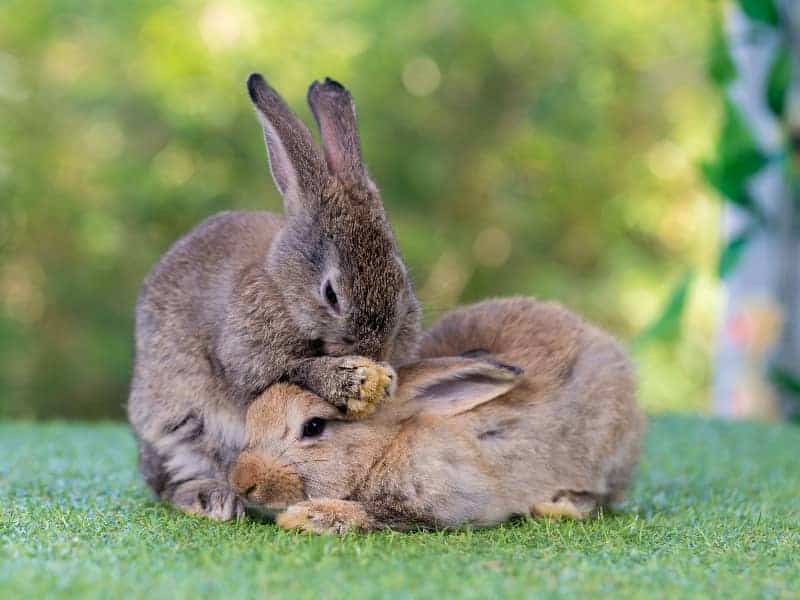
Dwarf rabbits and lettuce: quality over quantity
Dwarf rabbits can basically eat iceberg lettuce, but it is important to control the amount. Small amounts mixed with other greens are fine. A varied diet is the key here.
An important point to keep in mind is that dwarf rabbits generally require less food than larger rabbits. However, this does not mean that you should skimp on the quality of the food. They still need a wide range of nutrients to stay healthy.
Feeding tips for dwarf rabbits
So how do you feed a dwarf rabbit properly? Here are a few tips:
- Feed your dwarf rabbit different types of greens. This will help ensure that it gets all the nutrients it needs.
- Make sure that your dwarf rabbit always has enough fresh hay available. It is important for digestion and dental health.
- Control the amount of iceberg lettuce you give your dwarf rabbit. Small amounts are fine, but overfeeding can lead to health problems.
- Avoid abrupt feed changes. Introduce new foods slowly to avoid digestive problems.
The right feeding for a long and healthy rabbit life
Proper nutrition is an important component for the health and well-being of rabbits. Whether or not iceberg lettuce should be part of this diet depends on several factors.
In the right amount and mixed with other greens, iceberg lettuce can be part of the diet. But as with everything in life, you should not overdo it. Because as we have already seen, too much iceberg lettuce can lead to health problems.
This is especially true for our little friends, the dwarf rabbits. With them, you should be especially careful when feeding iceberg lettuce and always keep an eye on the amount. Because even though they are small, they have just as specific nutritional needs as their larger relatives.
And last but not least, a varied diet is the key to a healthy rabbit life. This is the only way to ensure that the animals receive all the necessary nutrients they need for a long and healthy life.
Understanding the physiological needs of rabbits
To fully understand why iceberg lettuce should not be the staple food for rabbits, we need to take a closer look at rabbit physiology. Rabbits are herbivores and their digestive systems are specifically designed to process plant foods.
The special digestive system of rabbits
Rabbits have a unique digestive system. They belong to the so-called caecotrophs, which means that they re-eat part of their own excrement to achieve optimum nutrient yield.
This special digestive method allows rabbits to efficiently use the valuable nutrients from their plant-based diet. But it also shows why a balanced diet is so important. Malnutrition can upset the delicate balance of this system and lead to health problems.
Why is high-fiber food so important?
Fiber is enormously important for rabbits. They keep the digestive system going and support the intestinal flora. They also ensure a slow and steady rise in blood sugar levels, which is important for rabbits because they are very sensitive to fluctuations.
Iceberg lettuce, on the other hand, contains very little fiber and a lot of water. If eaten in excess, this can lead to the rabbit consuming too little fiber and disrupting its digestive system. Therefore, it is important to feed iceberg lettuce only in moderation and to ensure that the rabbit also receives sufficient fiber-rich food.
Rabbit teeth: Another reason for high fiber feed
Another important aspect are the Rabbit teeth. These grow back throughout life and therefore need to be constantly worn down to stay healthy. High-fiber feed, especially hay, helps to wear down the teeth naturally and prevent dental problems.
The importance of water in rabbit nutrition
Water is vital for all living things, including rabbits. It is important for the animal's digestion and overall health. But while iceberg lettuce is very rich in water, it is not the best source of water for rabbits.
This is because rabbits in the wild take in little water through their food and instead drink directly. Therefore, it is important that rabbits always have access to fresh drinking water. Iceberg lettuce should therefore not be seen as a substitute for drinking water.
Alternatives to iceberg lettuce for a healthy rabbit diet
Now that we understand why iceberg lettuce should not be the main green food for rabbits, the question is: what are the alternatives? Fortunately, there are many different types of greens that are suitable for rabbits and are a good alternative to iceberg lettuce.
Variety green fodder: a feast for rabbits
Rabbits love to eat different types of green food. This not only provides them with variety, but also ensures that they get all the nutrients they need. There are many different types of greens that are suitable for rabbits. Here are some examples:
- Carrot greens: Rich in vitamins and minerals and popular with most rabbits.
- Parsley: An excellent source of vitamin C and calcium.
- Fennel: This vegetable is rich in vitamins and minerals and can help with digestion.
- Basil: This herb is rich in vitamins and can help boost the immune system.
- Dandelion: This often overlooked "weed" is in fact an excellent food for rabbits. It is rich in vitamins and minerals and can be fed both fresh and dried.
The ever-popular hay: a must-have for every rabbit
We can't stress it enough: Hay is an absolute must in every rabbit's diet. It is rich in fiber, which is essential for healthy digestion, and helps wear down the teeth. Hay should always be available in sufficient quantity and is the main ingredient in a rabbit's diet.
Dry food for rabbits: To be used with caution
Dry food can be used as a supplement to rabbits' diets, but should not be used as the main food. It is often high in carbohydrates and low in fiber, which can lead to health problems if consumed in excess.
Conclusion: Are rabbits allowed to eat iceberg lettuce?
So the question of whether rabbits are allowed to eat iceberg lettuce is not so easy to answer. Yes, they may eat it, but it should only be a small part of their diet. What is important is a varied diet that covers all the necessary nutrients, and enough hay.
Ultimately, it is important to monitor the individual behavior and health of your own rabbit. If there are any signs of discomfort or digestive problems, a veterinarian should always be consulted. This is because although we know a lot about rabbit nutrition, each animal is individual and may react differently to certain foods.
Author

-
Garden animal - A life with nature
Welcome to my animal blog! My name is Dirk and I am happy to take you on my journey through the fascinating world of animals and gardening.
Born 54 years ago, I have had an insatiable curiosity for the animal world around me since childhood. Although I have moved professionally in other industries, my true passion has always been animals and nature. It is remarkable how a small garden has become such an important part of my life.
Many of my fondest memories are associated with the animals that share our home. Whether it's the curious squirrels that scurry across the trees in the morning, the colorful variety of birds that visit our feeders, or the busy bees and butterflies that pollinate our flowers, every moment with them is invaluable to me.
This blog is my contribution to share my experiences, discoveries and insights with like-minded people. Here I will share stories of unforgettable encounters with animals, give tips on gardening and creating wildlife-friendly habitats, and take you on my journeys through nature.
Thank you so much for being here!
Cordial,
Dirk aka garden animal
Last posts
- 27. February 2024PetsVeganes Hundefutter – Grün und Gesund?
- 18. January 2024ChickensOregano für Hühner
- November 27, 2023HamsterDiurnal hamsters
- November 24, 2023HamsterHamster hammock

